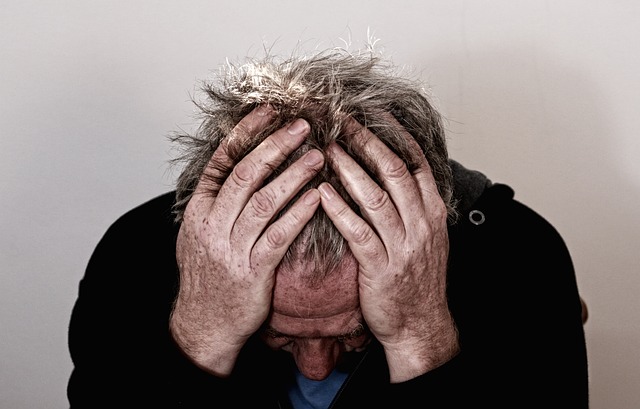CBD Oil for Migraines: Risks and Benefits
Have you ever had a headache and immediately reached out to the antibiotic you regularly depend on? Do you regularly just pop a pill to fix your migraines without giving it too much thought? If this is you, then you should definitely look into more natural options to tame your migraine issues.
Every product introduced to treat an illness has its set of side-effects. Within a set of viable natural solutions for migraines, CBD oil is proving to be a possible cure.
With the recent legalization of Cannabis many people have been considering Cannabis products in treating conditions like chronic pain, sleep disorders, and epileptic seizures. Despite already being legalized across the US, there are a number of unknowns of what the long-term effects of Cannabis are.
Cannabidiol (CBD) has seen an increase in popularity for treating different conditions. CBD is part of a family of some 120 compounds that are associated with the Cannabis plant.Currently there are FDA approved CBD drugs that help treat epilepsy for seizures and improve the diet of patients.
Although the research is still relatively new, CBD oil is being considered to treat many other conditions.
One of these include the treatment of migraines. Several variants of CBD are approved to treat pain relief in a clinical setting. According to an article on HealthcareWeekly, different types of CBD are already being used for different types of pain including cancer and central neuropathic pain.
It’s important to highlight that not every CBD product contains the psychoactive chemical THC that is in other Cannabis products. In fact, you can purchase any CBD product legally as long as it doesn’t contain THC.
CBD without THC does not have any psychotropic or “high” effects like marijuana, but it does demonstrate anti-inflammatory and anti-psychotic effects. There are potential benefits of using CBD infused with THC, one being the euphoric “high” as it could help relieve anxiety which in turn relieves pain.
Since CBD is ingested by smoking, smoking CBD can then be a risk factor. It was found that it can affect the respiratory system in a similar way to smoking tobacco according to a 2007 Medical Journal Review.
Despite some of these precautions there is some possible benefits of CBD. In terms of CBD to treat migraines, some early research looks promising.
A study in 2009 showed that different cannabinoid compounds, like dronabinol a man-made cannabis, can help relieve pain in cluster headaches. The evidence in these studies suggests there are not definite conclusions and that there should be further research into the effects of CBD.
Although these are promising results many researchers argued they should be cautious about jumping to conclusions.
A study review done in 2017 found that the preliminary results suggest there should be more clinical trials of the drug. The study further highlights the need for effective treatments for migraines and other headache related issues by showing that total societal costs in productivity to be about $14 billion annually.
Due to the costs highlighted above, it is important to look at ways where there could be alternatives to antibiotics for treating headache disorders.
A study conducted by the American College of Clinical psychology in 2016, tested 120 migraine patients. The study highlighted the effectiveness of medical marijuana in curing migraines.
Although, the study mentioned above is specific to medical marijuana and not CBD, CBD tincture oil is known to contain properties very similar to medical marijuana.
A paper published in 2008 highlighted some of the positive and negative effects of using CBD in the treatment of chronic pain. It noted that THC can have anti-inflammatory properties and that it has about twenty times the potency of aspirin for treating inflammation.
The study also highlighted one risk factor and that was risk of addiction. The authors suggest that adolescents and young adults who take Cannabinoids may experience long-term side effects which could cause them to be habitually addicted to the drug.
The study showed that there is rare chance of developing psychosis and schizophrenia later in life from using Cannabis related products specifically smoking Marijuana.
However, a separate review of some 30 years of data has shown that CBD (not Marijuana) can have antipsychotic effects based on studies with animals and human volunteers. In fact, CBD can have similar effects to other atypical antipsychotic drugs.
When taking CBD there can be some side effects which include tiredness, diarrhea, insomnia, fatigue, and changes in appetite.
If a person wanted to take CBD to help treat migraines, they should consider the effects of change in appetite that would affect their diet. A change in appetite might be good or bad based on the health and weight of a person who is taking CBD.
One benefit that could help with the treatment of migraines is CBD’s psychoactive effects. These could potentially help relieve anxiety and depression symptoms, which often act as a trigger for migraines.
CBD with THC could help relieve migraine pain based on the high it may produce. In this case, the use of THC has to be calculated well and the product should come from a trusted source. You must consult your doctor regarding your interaction with these types of products.
Historically, Cannabis has been used to relieve anxiety and to treat pain. CBD, on the other hand was discovered in the 1940’s.
Despite the lack of information available on the physical effects of CBD as it is still federally still illegal, a lot of states have passed laws for its restricted use in a medical capacity. There has been an increase of research in studying the effects of Cannabis.
With multiple states legalizing Cannabis, and across the board research on the various uses of this all natural substance, CBD is about to create a positive impact in quite a few industries.
Please consult your doctor before using any natural substance like CBD. Laws of all states vary, hence please refer to your state website before product purchases.
For example, some states where medical marijuana is illegal, products containing the best organic CBD oil and even a certain amount of THC infusion for a specific purpose, may be legal. The laws regarding CBD and Marijuana do not always coincide with one another.




